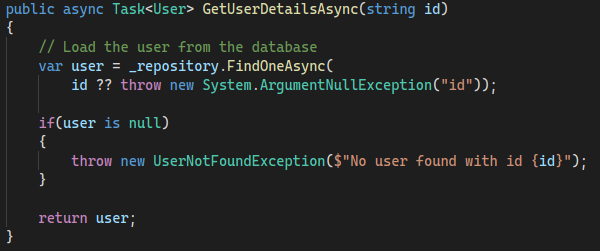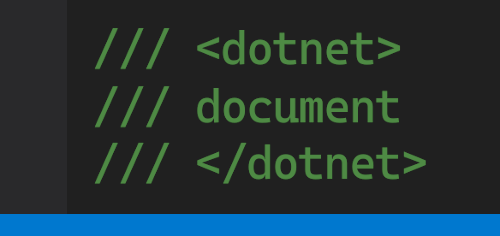A cross platform tool that auto generates an XML doc starting point for your C# codebase.
Thanks to Microsoft.CodeAnalysis.CSharp this tool is able to identify undocumented members and to generate a meaningful XML doc by humanizing member names.
| Before | After |
|---|---|
 |
 |
The tool can be installed globally via Nuget by running
dotnet tool install --global dotnet-document --version 0.1.4-alpha👉 When installing pre releases the version has to be explicitly specified
To run the tool invoke dotnet document apply
# Documents all *.cs files in the current dir and all sub dirs
dotnet document apply
# Documents the specified .cs file
dotnet document apply ./src/folder/MyClass.cs
# Documents all *.cs files in the specified dir and all sub dirs
dotnet document apply ./src/folder/
# Documents all *.cs files in the specified solution
dotnet document apply ./src/solution.sln
# Documents all *.cs files in the specified project
dotnet document apply ./src/folder/project.csprojTo test the command without saving changes on disk a dry run option is available.
In case of undocumented members a non-zero exit code is returned so that it is possible to warn about it during CI.
dotnet document apply --dry-runThe tool can be configured so that the generated XML documentation meets the project guidelines.
The default configuration is used when no config file specified. It can be viewed by invoking
dotnet document config --defaultTo customize the configuration, simply save the default one somewhere and use your preferred editor to update it.
dotnet document config --default > ~/my-dotnet-document.yamlCustom configuration path can be provided either by setting a DOTNET_DOCUMENT_CONFIG_FILE env variable or by passing the -c argument when calling the apply command. The latter overrides the first.
dotnet document apply \
-c ~/my-dotnet-document.yaml \
./src/folder/To double check which configuration is being used, invoke
dotnet document config👉 Folder based configuration discovery is not yet supported
- Humanizer - Used for humanizing member names
- Ensure.That - Used as a guard clause
- FluentAssertions - Used for wrinting better assertions
- Moq4 - A mocking library for easier testing
- xUnit - The test framework


